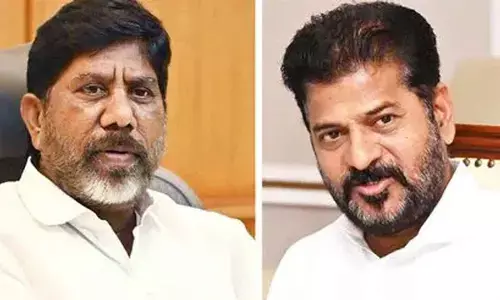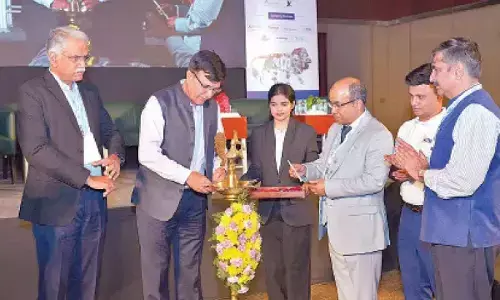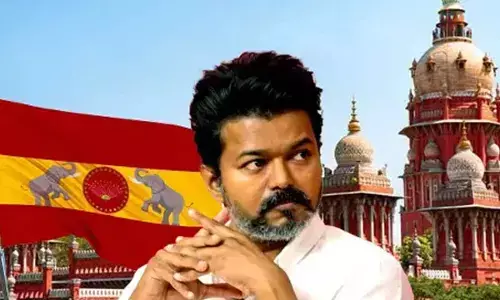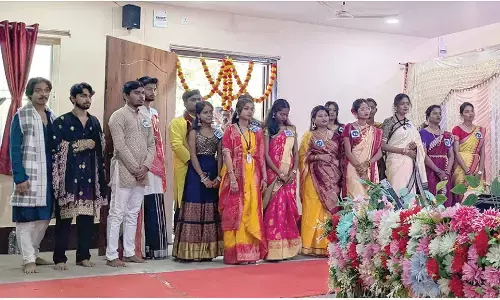MyVoice: Views of our readers 21st March 2021

MyVoice: Views of our readers 19th December 2021
While India enjoys a wide geographic and cultural diversity, it also suffers from a huge socio-economic divide. Only a small part of the Indian population has access to online education right now. Interrupted power supply, weak or non-existent internet connectivity, and un- affordability to buy necessary devices are major concerns.
The ugly side of online classes
While India enjoys a wide geographic and cultural diversity, it also suffers from a huge socio-economic divide. Only a small part of the Indian population has access to online education right now. Interrupted power supply, weak or non-existent internet connectivity, and un- affordability to buy necessary devices are major concerns. "In a Class of 40 students, after two months of online classes, around 20 students regularly attend class with whatever device and connection they have. Around 5 – 8 students are completely absent till date and rest are fluctuating", says a schoolteacher in Ratnagiri in Maharashtra. A teacher in a government-aided school from the small town of Chamba in Himachal Pradesh says, "It is a frustrating experience to engage students of lower classes in online mode. There are network issues on both teachers' and students' ends".
To deal with internet connectivity and device availability issues, 'classes' in many places are happening via sharing of videos by teachers over WhatsApp or YouTube, so that students can watch them at their convenience. This too, however, comes with difficulties in understanding the lessons and promotes rote learning. The same is true of pre-recorded sessions aired on the television (e.g., Swayam Prabha DTH channels) and radio (audio lessons, through All India Radio), although they do cater to a wider student population that cannot avail live online classes.
That is not all. With limitations of livelihood in a family, the first ones to receive a blow are often girls. In a recent survey of 733 students studying in government schools in Bihar, only 28 per cent of the girls had smartphones in their homes, in contrast to 36 per cent of the boys. These smartphones almost always belonged to male adults, often being lesser accessible to girls than boys, and half of these families could not afford internet data packages. Therefore, lessons aired on television was the main option for a majority of the students participating in this survey. However, girls were found to spend a disproportionately longer time on household chores than boys, which often overlapped with the time of telecast of these lessons. Such gaps in education could worsen the already wide gender gap in employment in India.
Students with disabilities are among the most dependent on in-person education and hence least likely to benefit from distance learning. A survey by Swabhiman (an NGO working mainly in Odisha), in association with the National Centre for Promotion of Employment for Disabled People, indicated that 73 per cent of the students with disabilities had concerns regarding the availability of study material in appropriate formats. Also, 79 per cent of their teachers were apprehensive about teaching effectively without use of touch to students with learning disorders, autism and low vision. The lack of effective education may further aggravate the high dropout rates of these children from schools (nearly 50 per cent pre-Covid) in developing countries.
- Vasavi Raju Barde, Nagpur
Ensure Hindus control temples
This has reference to the article on "Free temples from government control " ( Mar 20). It is the first and foremost duty of any government, for that matter, is to govern. It has no business in peeping its nose in the matter of if any religion by taking over and managing administration of particularly temples in a state of Hindu religion.
Initially the revenue by the government from the Hindu temples are huge. Temple properties lies in the form of land, money, Jewellery, agricultural income, rent from land and buildings and shops. The revenue thus earned is not set apart either to improve the Hindu culture nor the temple itself which is in a dilapidated condition. But for certain famous Hindu temples like Tirupati in AP, Sabarimala in Kerala, Palani in TN and the like rich revenue earning temples small temples are not taken over by the government for the best reasons open to all. Also vote bank politics has a role to play. The income of other small temples is very meagre. Even paltry salaries of priests could not be paid in certain temples, leave alone lighting a lamp in the small temple daily. Low rent payment on land and buildings, looting of money, antique statues and Jewellery are some of the ills of our Hindu temples today.
It is very sad that 14 per cent of the funds in government controlled temples go as administrative expenses. Politicians are appointed as Executive officers and staff. They take away half the income as their salaries. Government takes over only the administration of high revenue earning temples. Non-revenue earning temples are left to fend for themselves. It is a matter of concern that only Hindu temples and that too high revenue yielding Hindu temples are taken over by the government. The temple EO, who is a politician, enjoys unlimited powers. In TN the temple properties like antique statues, Jewellery, lands, shops and all have disappeared in a large scale due to political interference. This is highly regrettable. Our culture is also eroded by keeping the control of the Hindu temples in the hands of the corrupt politicians. The state of affairs of the Hindu temples is pathetic in the hands of our politicians. This really needs a check.
Secondly this act of taking over the administration of the Hindu temples stands partial. But for Hindu temples, the temples of no other religion is taken over by the government for administration.
Sravana Ramachandran, Chennai
Temples should be out of govt control
This refers to 'Free temples from government control' by V Ramu Sarma (THI March 20) which has given elaborate notes to governments. Prime Minister Narendra Modi has said that government's business is not doing business. Is it right? Truly false. It is also doing more business than business by collecting taxes in various methods, etc. In days of yore, Hindu temples were under private trusts. There was only one temple in each village and today every street has a temple. Gods and Babas have become more and it leads to cultural diversification to leaps and bounds.
Huge flow of income in certain temples has become eyesore and as such they were brought under government control. Why are Christian and Muslim places of worship which are also getting lots of monies not taken over by government? Hindus are always lenient to Indian rulers. Prevalence of politics spoils the sanctity. Unauthorised entry into shrine with the aid of authorised officials in Tirumala is the latest example. It is already too late but at least now temples such as Tirumala, Srisailam, Annavaram, Bhadrachalam, Yadadri should be handed over to temple trusts to avoid unnecessary political interventions.
N Ramalakshmi,Secunderabad
















